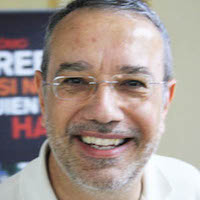Evangelical leaders in Europe react to Anglican Primates decision
“Unity is not only a vague feeling of nearness”, says Jaume Llenas (Spain). David Robertson (Scotland) believes Anglicans have other “unanswered questions”. Luc Olekhnovitch (France) sees similarities with debates in his country.
MADRID · 15 JANUARY 2016 · 16:39 CET

The decision of the 2016 Primates meeting to uphold the Biblical doctrine of marriage will greatly influence the future of the Anglican Communion. Other Protestant and Evangelical churches have followed the decision closely.
The Anglican gathering decided to temporarily suspend The Episcopal Church (the Anglican province of the USA) after the “fundamental departure from the faith and teaching held by the majority of our Provinces on the doctrine of marriage.”
Evangelical Focus asked some non-Anglican evangelical leaders in Europe about this decision and its consequences.
DAVID ROBERTSON: “A FIRST STEP WITHIN THE ANGLICAN COMMUNION”
David Robertson, Moderator of the Free Church of Scotland told Evangelical Focus: “I think this is a good decision but somewhat limited”.

“Having said that, this is a victory and a first step within the Anglican Communion, who wish to see their church restored to a more biblical perspective. We can only pray and wish them well”, Robertson said.
JAUME LLENAS: “CLEAR MODEL REFLECTING SCRIPTURE NEEDED”
Along the same lines Jaume Llenas, the General Secretary of the Spanish Evangelical Alliance said: “It is legitimate to change your convictions and embrace other convictions, but it is also legitimate for those who have not changed their convictions to decide that the historical faith of the Anglican Communion is not represented by this group anymore”, he told Evangelical Focus.

“In times of disorientation in society, we have two options”, the Spanish pastor said. “Either we relativise our model or we offer a clear model which reflects Scripture and its historical understanding by the Church.”
“What we should always avoid is to believe that the God of the Bible is not loving and merciful enough, and therefore we need to re-tell His words in a way that they look good to the mentality of our century”, Llenas argues.
“What has changed since the 19th century is the position of man in front of God. Historically, human beings were understood to be under God’s sovereignty and judgement. Now, it is God who is sitting in the dock and humanity is the judge. If this God defends his faith reasonably enough, he can even be absolved and tolerated. But what has changed is who is it that judges and who is the accused.”
“UNITY IS NOT ONLY A VAGUE FEELING OF NEARNESS”
How will the decision of the Primates affect the unity of the Anglican Church? There can be some “concerns”, Llenas says, “because division always affects God’s witness.”
“But unity has to be based on the Trinity and on Christ’s mission on Earth. Unity has to have content; it is not only a vague feeling of nearness, some vague references to a kind of love that we think we can define according to our own ideas, but a real commitment to God and His Word.”
The Spanish Evangelical Alliance representative thinks that “frequently those who move away from the Christian beliefs accuse others of breaking the unity of the church. Intellectual coherence with our own beliefs is needed”, Llenas concludes.
LUC OLEKHNOVITCH: “A QUESTION OF FIDELITY TO GOD’S WORD”
Luc Olekhnovitch, President of the Commission d’Éthique Protestante Évangélique (Evangelical Protestant Ethics Comission) in France believes “the blessing of same-sex marriages is not only an internal affair of the Anglican Communion, but a problem for non-Anglicans, too.”

According to Olekhnovitch, it is “logical that the Anglican Communion suspends the right of the Episcopal Church USA to represent them.” But “the measure is symbolic”, he believes.
“Should the Anglican Communion go further? It is for them to decide”, he concludes.
Published in: Evangelical Focus - europe - Evangelical leaders in Europe react to Anglican Primates decision















